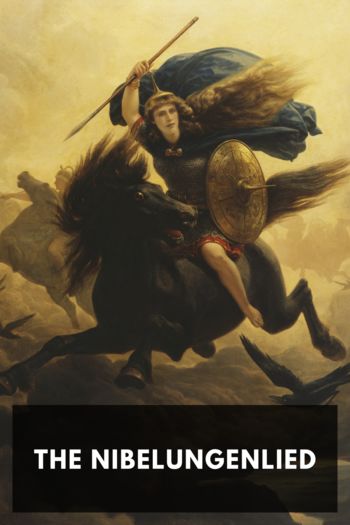The Trials of Radclyffe Hall, Diana Souhami [best sales books of all time .TXT] 📗

- Author: Diana Souhami
Book online «The Trials of Radclyffe Hall, Diana Souhami [best sales books of all time .TXT] 📗». Author Diana Souhami
It took manoeuvring to get from hovering on the brink to between the sheets. They went out together, identified with lovers in the park, the themes of songs and operas. ‘The end came suddenly without any warning.’ After a matinée and tea in town, Agnes returned to Trebovir Road for dinner. There was dense fog, so she stayed the night. At the top of the house she and Marguerite parted without the usual hesitancy. Agnes closed her bedroom door. Marguerite undressed, ‘seized with a sense of elation’. On the landing she paused, looking at the strip of light under the door. ‘Come in kid,’ said Agnes and then, when Marguerite got into bed with her, ‘you ridiculous child why didn’t you come before?’
4
The pearl necklace she gave me
Marguerite left Trebovir Road when her inheritance came within her control. Her mother attacked her for going out with Agnes Nicholls. She pulled her hat and a clump of hair from her head, called her vile, filthy, corrupt, depraved, against nature and against God and hit Grandmother Diehl when she intervened.
Money was more incandescent than sex. Assessing her finances with a solicitor, Marguerite found the Visettis had overspent on her trust fund by £12,000. She challenged them, said her education had been a patchy affair of cheap governesses and that she did not see how her inheritance had been spent to benefit her.
Mrs Visetti was provoked by it all. Her machinations over the Case had backfired. Radclyffe’s daughter, whom she despised by virtue of his paternity, had scooped the lot and was reluctant to give her any. From then on Mrs Visetti made many financial demands. Marguerite dealt with these crisply but with no particular generosity. She used money to control her mother, made her an annual allowance of between £200 and £300 and called her to account as to why she should give her more.
She leased a house in Church Street, Kensington, near the Gardens and Hyde Park. She moved in with her grandmother, furnished the place with antique oak furniture and the oil paintings of her father’s forebears and used it as a base for adventure and travel.
The affair with Agnes Nicholls petered out. Independence made Marguerite less tolerant of the patois French and affected gestures, or less consumed with interest in her lover’s vocal cords. As Una Troubridge was to put it, ‘the Lord had not designed her to be a satellite’. Agnes Nicholls went on to sing at Covent Garden – her debut in 1901 was as the Dew Fairy in Humperdinck’s Hansel and Gretel; she had a long association with the Sadler’s Wells Opera, and Edward Elgar and Hubert Parry wrote parts especially for her in their choral works. She married the composer and accompanist Hamilton Harty. They had a successful musical partnership but the marriage failed. In later years Marguerite took other lovers to hear Agnes Nicholls sing Brünnhilde and Sieglinde at Covent Garden.
With money, freedom and her sexual orientation clear, Marguerite changed her image. She preferred to be known as Peter, a sobriquet that did not stick. She swept her hair back from her face, wore tailored clothes, wide-brimmed hats and plain but expensive jewels. She was opinionated and vulnerable. There was a humourless directness about her, an inability to dissemble, to be other than she was or to see another’s point of view. Her solemn, misspelt prose was childlike, riddled with clichés and written in a rounded, backward-sloping hand. She collected stamps, rode horses, hunted foxes, kept dogs and budgerigars.
Unmistakeably lesbian, she was not going to pretend a passing interest in men. ‘Man is vile to her and I believe that is why she will never marry’, the novelist Violet Hunt wrote of her. Eighteen years older than Marguerite, Violet Hunt was the author of Tales of the Uneasy and The Wife of Altamont. A friend of Henry James and a lover of H. G. Wells, she was famed for her Pre-Raphaelite looks and, later, for a scandalous affair with the writer Ford Madox Ford.
She was a neighbour of Marguerite’s in Campden Hill, Kensington. Marguerite adored and wooed her:
Perhaps even now you are thinking me impertinent as you read this letter. I can’t help it Violet, I must risk that. If I can’t always say the things I am feeling when we are together it is because you have built a brick wall around yourself and I must not venture to get inside it. No doubt you have many good reasons for wanting it to be there. I have never met anyone who could so repulse affection as you can in your own sweet way. If you are angry with me what can I say except that I am so fond of you? I will never bother you to read this sort of thing again.
‘She loved me so hotly poor darling’, Violet Hunt wrote. ‘She used to write and say that I erected a brick wall between her and me. Why brick, I would say nervously, but I knew. I was always full of someone else. And I wear the pearl necklace she gave me …’
Marguerite locked in to attraction then wooed with determination. What she wanted she felt she should have. Her lovers had no money of their own. She used hers for seduction, allowances and gifts. She bought her way into their beds. If one spurned her she fixated on another. Caught in a family psychodrama, some were related to her mother. They seemed to form links in a transference chain. Her





Comments (0)